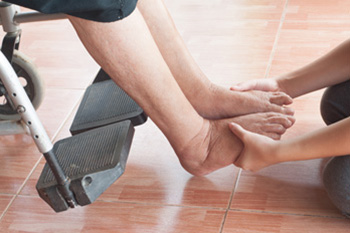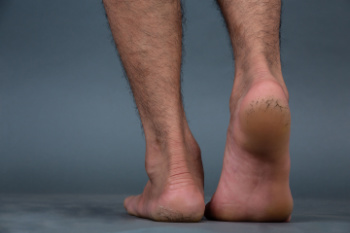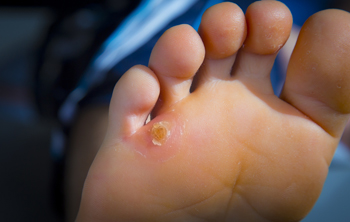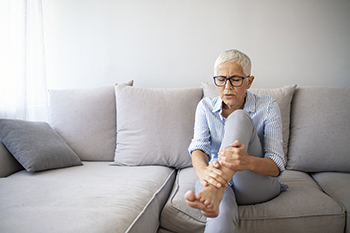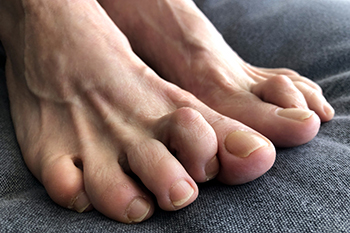
Ankle and foot arthropathies refer to joint diseases affecting the feet and ankles, often caused by arthritis, autoimmune conditions, or degenerative wear over time. Osteoarthritis, rheumatoid arthritis, and post-traumatic arthritis are common culprits, leading to inflammation, stiffness, and pain in the affected joints. These conditions can develop due to aging, past injuries, repetitive stress, or genetic predisposition. Symptoms include swelling, stiffness, reduced range of motion, and discomfort while walking or standing. Over time, untreated arthropathies can lead to joint deformities and difficulty with mobility. Managing symptoms involves lifestyle modifications, wearing supportive footwear, targeted exercises, and sometimes orthotics to relieve pressure on the joints. In more severe cases, medication or surgical intervention may be necessary. Early diagnosis can slow progression and improve quality of life. If joint pain in your feet or ankles persists, it is suggested that you see a podiatrist for a proper evaluation and appropriate treatment.
Arthritis can be a difficult condition to live with. If you are seeking treatment, contact one of our podiatrists from Footcare Now. Our doctors can provide the care you need to keep you pain-free and on your feet.
Arthritic Foot Care
Arthritis is a term that is commonly used to describe joint pain. The condition itself can occur to anyone of any age, race, or gender, and there are over 100 types of it. Nevertheless, arthritis is more commonly found in women compared to men, and it is also more prevalent in those who are overweight. The causes of arthritis vary depending on which type of arthritis you have. Osteoarthritis for example, is often caused by injury, while rheumatoid arthritis is caused by a misdirected immune system.
Symptoms
- Swelling
- Pain
- Stiffness
- Decreased Range of Motion
Arthritic symptoms range in severity, and they may come and go. Some symptoms stay the same for several years but could potentially get worse with time. Severe cases of arthritis can prevent its sufferers from performing daily activities and make walking difficult.
Risk Factors
- Occupation – Occupations requiring repetitive knee movements have been linked to osteoarthritis
- Obesity – Excess weight can contribute to osteoarthritis development
- Infection – Microbial agents can infect the joints and trigger arthritis
- Joint Injuries – Damage to joints may lead to osteoarthritis
- Age – Risk increases with age
- Gender –Most types are more common in women
- Genetics – Arthritis can be hereditary
If you suspect your arthritis is affecting your feet, it is crucial that you see a podiatrist immediately. Your doctor will be able to address your specific case and help you decide which treatment method is best for you.
If you have any questions, please feel free to contact our offices located in Elmhurst Jackson Heights, Astoria, NY, and Rego Park, NY . We offer the newest diagnostic and treatment technologies for all your foot care needs.
